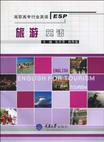旅游英语
出版时间:1970-1 出版社:张万喜、 冉秀霞 重庆大学出版社 (2010-01出版) 作者:张万喜,冉秀霞 编 页数:182
前言
《旅游英语》一书的编写,是根据旅游局、劳动和社会保证部对旅游行业的相关要求,并以国家教育部、旅游局制定的《旅游专业领域技能型紧缺人才培养方案》和《高职高专教育英语课程教学基本要求》为依据,并对从事旅游专业教学的相关教师、在校学生和毕业学生进行调查访问和对旅游行业工作者实际工作中的知识需求、职业特点进行分析的基础上编写的。本书可供普通专科、高职专科、成人专科旅游专业的学生和旅游自学考试大专的学生学习,还可供中等职业学校旅游英语、旅游管理、旅游导游专业学生和有一定英语基础的旅游从业人员使用。旨在通过情景模拟、情景会话、专业听力、专业阅读和应用写作训练,培养学生在将来旅游工作中的综合素质和英语应用能力。《旅游英语》是一门实用性很强的旅游专业必修课程,目的是培养学生具有一定基础的英语听、说、读、写能力,掌握旅游行业服务与管理的专业英语,使学生具备用英语进行旅游行业管理与服务的能力,为从事旅游业工作打下基础。本书的编写,针对高职院校旅游专业学生的英语基础和特点,以专门用途英语的相关理论为指导,把英语教学的最新知识、最新发展与旅游行业的新理念、新观念相结合,并内化成学生的能力;注重旅游从业方面专业知识听、说、读、写的综合能力训练,以旅游工作过程为导向。本书形式新颖、内容充实,注重实践性和前瞻性,适应旅游市场对人才的需要,有利于学生的可持续发展。本书共10单元,每单元参考学时4学时,全书可供32-40学时使用(教师可根据具体情况选择其中的8-10个单元讲解)。根据旅游行业的特殊性,本书每单元前配有世界景点图片,以开阔学生视野;在每单元开头,用方框的形式给出一些旅游常用语;结尾处有一则与课文相关的典故或幽默故事,使学生在学习过程中轻松、愉悦地积累行业英语知识,逐渐培养其职业能力。
内容概要
《旅游英语(附1张CD光盘)》是一门实用性很强的旅游专业必修课程,目的是培养学生在具有一定的基础英语听、说、读、写的基础上,掌握旅游行业服务与管理的专业英语。《旅游英语(附1张CD光盘)》的编写,针对高职院校旅游专业学生的英语基础和特点,以专门用途英语的相关理论为指导,注重旅游从业方面专业知识听、说、读和写的综合能力训练,以旅游工作过程为导向,适应旅游市场对人才的需要;注重学生自主学习能力培养,利于学生将来可持续发展。《旅游英语(附1张CD光盘)》共10单元,每单元分成听说、阅读、实用写作3个部分,每单元参考学时4学时,全书可供32-40学时使用。
书籍目录
Unit 1Special TermsSection 1 Listening and TalkingSection 2 TextsText A World Tourism OrganizationText B Quality Criteria of TourismSection 3 Practical WritingSection 4 Reading and EnjoyingUnit 2Special TermsSection 1 Listening and TalkingSection 2 TextsText A Travel AgencyText B Deposit the Luggage at the AirportSection 3 Practical WritingSection 4 Reading and EnjoyingUnit 3Special TermsSection 1 Listening and TalkingSection 2 TextsText A A HotelText B Guest SecuritySection 3 Practical WritingSection 4 Reading and EnjoyingUnit 4Special TermsSection 1 Listening and TalkingSection 2 TextsText A Chinese CuisineText B Southern Chinese CuisineSection 3 Practical WritingSection 4 Reading and EnjoyingUnit 5Special TermsSection 1 Listening and TalkingSection 2 TextsText A Chinese FestivalsText B Western FestivalsSection 3 Practical WritingSection 4 Reading and EnjoyingUnit 6Special TermsSection 1 Listening and TalkingSection 2 TextsText A BuddhismText B Western ReligionsSection 3 Practical WritingSection 4 Reading and EnjoyingUnit 7Special TermsSection 1 Listening and TalkingSection 2 TextsText A Chinese Folk DressesText B Chinese Folk SongsSection 3 Practical WritingSection 4 Reading and EnjoyingUnit 8Special TermsSection 1 Listening and TalkingSection 2 TextsText A The Great WallText B The Summer palaceSection 3 Practical WritingSection 4 Reading and EnjoyingUnit 9Special TermsSection 1 Listening and TalkingSection 2 TextsText A Means of TransportText B Taking the SubwaySection 3 Practical WritingSection 4 Reading and EnjoyingUnit 10Special TermsSection 1 Listening and TalkingSection 2 TextsText A Shopping in TravellingText B Significant Tourist SouvenirSection 3 Practical WritingSection 4 Reading and EnjoyingAppendixFamous Scenic Spots in ChinaThe Main Travel Agencies in ChinaGlossary
章节摘录
插图:it cannot discontinue because of thetemporarily attained quality result. It also implies a seamless or flawless process inwhich it is possible to identify and do away with the constraints of a supply which spoilthe tourism product and are responsible for direct and indirect losses to the company ordestination." Satisfaction" introduces the elements of subjectivity in quality perception.According to their characteristics, customers have different requirements andexpectations. Informed quality-driven marketing caters to these characteristics andattempts to identify consumers according to the different types and levels of perceivedquality." Legitimate" brings into the analysis the elements of rights and entitlement.Consumers cannot expect to receive more than what they remunerate by payment or whathas been determined by social and environmental limits. The role of tourism plannersand entrepreneurs is to relate quality types and levels to remuneration and externallimitations.The notion of "needs" follows on the concern for legitimacy and looks for satisfyingpeople's basic and vital needs which should never be overlooked while bringing intotourism projects and programs the other aspects with a view to introducing attractions,strengthening experience, etc. The needs are primarily related to the underlying qualitydeterminants, although over time the expectations related to the type and volume of"basic needs" change and usually increase. Basic needs of the past are not exactly the basic needs of today.The notion of "product requirements" emphasizes a need to relate a single serviceand facility use to the whole product and the total tourism experience. One good quality service is not sufficient to give rise to tourism product quality perception, although an excellent service may positively impress the consumer to make him or her close their eyes to shortcomings and defects experienced elsewhere in the tourism product.The term " service requirements" relate quality to its human, personal and personnel dimensions which are often intangible and apparently difficult to measure,evaluate and quantify in contrast with the physical attributes of tourism facilities which are used primarily in facility classifications or grading. However, certain serviceele ments are quantifiable, for example Waiting time, frequency of service (e. g.cleaning), the number and type of services included in the basic price, etc.
编辑推荐
《旅游英语》:高职高专行业英语系列
图书封面
评论、评分、阅读与下载
用户评论 (总计0条)
相关图书
- 旅行社经营管理
- 高中英语同步讲解与测评(模块5、6)(配译林版) (平装)
- BABY学前故事会典藏系列·中国成语篇
- 计算机网络基础
- 2010年河南省中等职业学校对口升学考试复习指导·计算机类专业(下册)
- 2010年河南省中等职业学校对口升学考试复习指导·计算机类专业(上册)
- 工程制图
- 生命的蓝色摇篮
- 电工学
- 高血压-图解最新医学
- 13小学创新一点通星级教案与作业新设计六年级语文
- 招商局长
- C++面向对象程序设计-第二版
- 市场营销知识 销售心理学基础
- 药剂学
- 供应链管理
- 商务谈判
- 心翔蓝天
- 园林Auto CAD教程
- 电工基础 电子技术基础
- 甘肃哈萨克族史话/甘肃少数民族史话丛书
- 仲裁与法律(第116辑)
- 外出打工法律知识问答
- 辽宁省地图
- 推动经济社会发展视野下的司法行政工作
